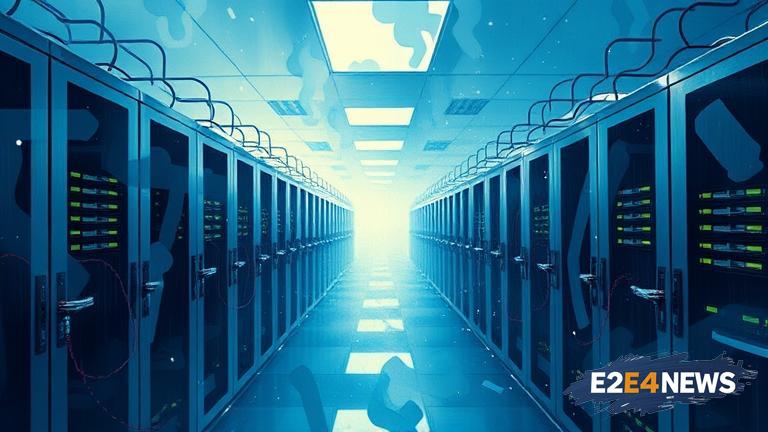New Jersey has become a hub for data centers, with many major companies setting up facilities in the state. However, the growing number of data centers has raised concerns about their water usage. Data centers use large amounts of water to cool their servers, which can strain local water resources. According to a recent report, data centers in New Jersey use millions of gallons of water every day. The report found that the water usage of data centers in the state is equivalent to the water usage of a small city. The high water usage of data centers has sparked concerns about the environmental impact, particularly in areas where water is already scarce. Some experts have warned that the water usage of data centers could lead to water shortages and harm local ecosystems. The New Jersey Department of Environmental Protection has begun to take steps to address the issue, including implementing new regulations on water usage. However, some critics argue that more needs to be done to reduce the water usage of data centers. The issue has also sparked a debate about the role of data centers in the state’s economy, with some arguing that they bring in much-needed revenue and jobs. Others argue that the environmental costs outweigh the economic benefits. As the demand for data storage and processing continues to grow, it is likely that the number of data centers in New Jersey will continue to increase, putting even more pressure on the state’s water resources. The state will need to find a balance between supporting the growth of the data center industry and protecting the environment. One possible solution is for data centers to use more water-efficient cooling systems, such as air-cooled systems or evaporative cooling systems. Another solution is for data centers to use recycled water or grey water for cooling, rather than potable water. The state could also consider implementing incentives for data centers to reduce their water usage, such as tax breaks or rebates. Ultimately, the key to reducing the water usage of data centers will be to find a balance between economic growth and environmental protection. The state will need to work with data center operators, environmental groups, and other stakeholders to develop solutions that meet the needs of all parties. By working together, it is possible to reduce the water usage of data centers and protect the environment, while also supporting the growth of the data center industry. The future of data centers in New Jersey will depend on the ability of the state to find a balance between economic growth and environmental protection.
